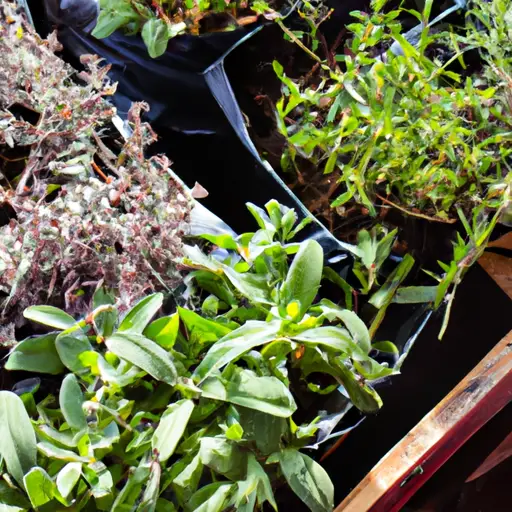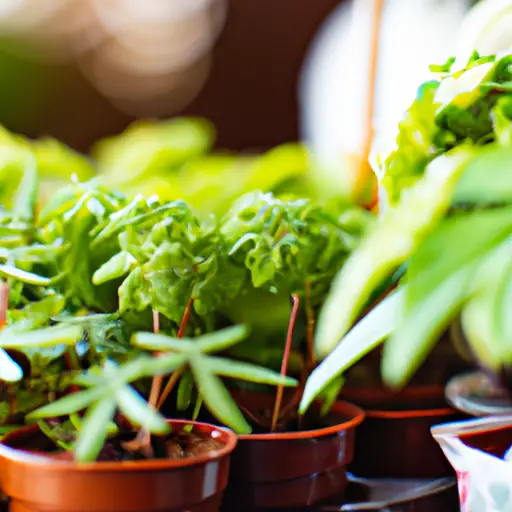Growing Happiness: The Benefits of Container Gardening
Introduction (100 words)
Container gardening has become increasingly popular in recent years, offering a convenient and rewarding way to bring the joy of plants and gardening into our lives. From cultivating beautiful flowers to growing fresh herbs and vegetables, container gardening provides numerous benefits for our overall well-being. In this article, we will explore the various advantages of container gardening and how it can contribute to our happiness and contentment.
1. Accessibility and Versatility (300 words)
One of the foremost advantages of container gardening is its accessibility. Unlike traditional gardens that require large spaces or separate plots, container gardens can be set up in even the smallest areas – from balconies and patios to windowsills or rooftops. This versatility allows garden enthusiasts to create green spaces in urban environments where conventional gardening might otherwise be impossible.
Container gardens offer endless possibilities when it comes to plant choices. Whether you prefer flowering plants, aromatic herbs, or edible fruits and vegetables, you have the freedom to select whatever suits your taste and preferences. This flexibility allows for experimentation and enables individuals to tailor their gardens according to their vision.
2. Therapeutic Benefits (400 words)
Engaging with nature has long been recognized as a way to alleviate stress, promote relaxation, and enhance mental well-being. Container gardening provides an opportunity for people of all ages to connect with nature on a regular basis, even if they lack access to traditional garden space. Spending time tending plants can improve one’s mood by reducing anxiety levels while increasing feelings of happiness and overall satisfaction.
Moreover, the act of nurturing plants in containers fosters a sense of purpose as individuals watch their efforts translate into visible growth and beauty. This process instills a sense of accomplishment that boosts self-esteem and promotes positive mental health.
3. Physical Well-being (300 words)

Beyond its psychological benefits, container gardening also contributes to physical well-being in several ways. Taking care of plants involves regular physical activity such as watering, potting, weeding, and pruning, which can be highly beneficial for those leading sedentary lifestyles. Engaging in these activities helps improve flexibility, strength, and coordination while promoting cardiovascular health.
Additionally, container gardens offer a convenient way to grow fresh produce. Fruits, vegetables, and herbs grown at home tend to have higher nutritional value compared to store-bought alternatives. By incorporating home-grown edibles into their diets, individuals can enjoy the health benefits of consuming organic and pesticide-free foods.
4. Community Engagement (400 words)
Container gardening also opens avenues for community engagement and social connections. Shared spaces such as community gardens or apartment complexes can serve as venues for like-minded individuals to come together and bond over their love for gardening. This collective effort not only promotes a sense of belonging but also creates opportunities for knowledge exchange and mutual support.
Furthermore, container gardens can be used as educational tools in schools or community centers to teach children about the importance of nature conservation and sustainable living practices. Gardening workshops or volunteer initiatives can also be organized to bring people together while fostering a sense of responsibility towards the environment.
Conclusion (200 words)
Container gardening has become more than just a hobby; it is a means of cultivating happiness in our lives. By allowing us to create green spaces even in the most limited areas, container gardening provides accessibility and versatility that conventional gardening cannot match. The therapeutic benefits derived from engaging with nature promote mental well-being by reducing stress levels, enhancing mood, and fostering a sense of purpose.
The physical well-being aspect cannot be overlooked either – container gardening offers a way to incorporate fresh produce into our diets while encouraging regular physical activity. Moreover, this form of gardening acts as a catalyst for building communities and forging social connections through shared spaces and collective efforts.
In conclusion, container gardening offers a myriad of advantages that extend far beyond simply growing plants. It provides an avenue for personal growth, creates opportunities for community engagement, and promotes overall happiness. So, whether you have a tiny balcony or a spacious backyard, why not start your container garden today and embark on a journey that will nurture not just plants but also your own well-being?













